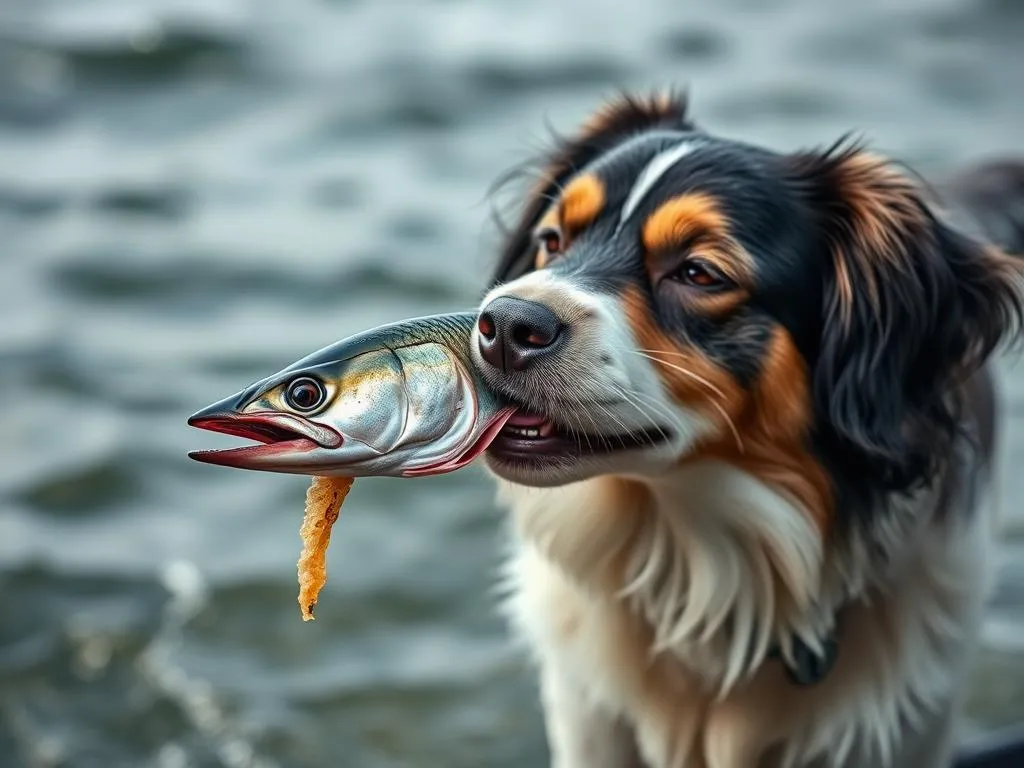
Introduction
When it comes to dog nutrition, understanding what foods are safe and beneficial for our furry friends is crucial. Just like humans, dogs require a balanced diet to thrive, and incorporating a variety of protein sources can enhance their well-being. One such option that often piques interest is mackerel. This oily fish is not only delicious for humans but also packed with nutrients that can be beneficial for dogs. However, before introducing any new food, it’s essential to explore the benefits, risks, and preparation methods of mackerel for dogs.
Understanding Dog Nutrition
Essential Nutrients for Dogs
To grasp the role of mackerel in a dog’s diet, we must first understand the essential nutrients that dogs need:
- Proteins: Vital for growth, repair, and maintaining muscle mass.
- Fats: Provide energy and aid in the absorption of fat-soluble vitamins.
- Carbohydrates: Offer a source of energy and support digestive health.
- Vitamins and minerals: Necessary for various bodily functions, including immune support and bone health.
Common Dietary Restrictions
Not all dogs can handle the same foods. Factors such as allergies, sensitivities, and specific health conditions can dictate dietary restrictions. Knowing these can help in making informed decisions about what to feed your dog.
Overview of Mackerel
What is Mackerel?
Mackerel is a type of oily fish known for its rich flavor and nutrient density. It is commonly found in both fresh and canned forms. The nutritional profile of mackerel is impressive, containing high levels of protein, healthy fats, and essential vitamins and minerals, making it an appealing option for dog owners looking to diversify their pets’ diets.
Benefits of Mackerel for Dogs
Mackerel offers several benefits for dogs, including:
- High protein content: Essential for maintaining muscle mass and overall health.
- Omega-3 fatty acids: These beneficial fats support heart health, reduce inflammation, and promote a healthy coat and skin.
- Vitamins and minerals: Mackerel is rich in vitamins B12 and D, as well as selenium, which contribute to various health functions.
Can Dogs Eat Mackerel?
Safety Considerations
When considering whether dogs can eat mackerel, it’s essential to evaluate safety factors:
- Types of mackerel: Dogs can consume fresh, canned, or cooked mackerel, but it’s crucial to avoid raw fish due to potential parasites.
- Potential contaminants: Mackerel can accumulate mercury and other toxins in their tissues. Opt for mackerel sourced from clean waters, and be mindful of the species, as some types of mackerel contain higher mercury levels than others.
Portion Control
Introducing mackerel into your dog’s diet requires attention to portion sizes:
- Recommended serving sizes: Generally, small dogs can have 1-2 ounces, while larger dogs can consume 3-4 ounces per serving.
- Frequency: Mackerel should be an occasional treat rather than a daily staple. Once or twice a week is suitable for most dogs, depending on their overall diet and health.
How to Prepare Mackerel for Dogs
Cooking Methods
Preparing mackerel for your dog can be simple and enjoyable:
- Grilling: Lightly grill mackerel without any seasonings.
- Baking: Bake at a low temperature to keep the fish moist and tender.
- Canning: If you choose canned mackerel, look for options that are packed in water without added salt or preservatives.
Avoiding Harmful Additives
To ensure mackerel is safe for your dog, avoid harmful additives:
- Seasonings to avoid: Ingredients like salt, garlic, and onion can be toxic to dogs. Always serve plain mackerel.
- Importance of serving plain fish: Keeping it simple helps prevent any adverse reactions and maintains the nutritional benefits.
Potential Risks of Feeding Mackerel to Dogs
Allergic Reactions
While many dogs can safely enjoy mackerel, some may develop allergies. Watch for signs of fish allergies, which include:
- Itching and scratching
- Digestive upset (vomiting or diarrhea)
- Swelling or hives
If you suspect an allergic reaction, consult your veterinarian immediately.
Overconsumption Risks
Feeding mackerel in moderation is key:
- Health issues: Excessive intake of fish can lead to a variety of health problems, including pancreatitis and mercury poisoning.
- Importance of variety in diet: A well-rounded diet should include a mix of proteins, vegetables, and grains to meet your dog’s nutritional needs.
Alternatives to Mackerel
Other Fish Options
If you’re considering alternatives to mackerel, several other fish varieties can be beneficial:
- Salmon: Rich in omega-3 fatty acids, but ensure it’s cooked to eliminate parasites.
- Sardines: A smaller fish that is also high in omega-3s and can be fed whole.
- Trout: Another nutritious option, but like salmon, should be cooked thoroughly.
Non-Fish Protein Sources
It’s also essential to include non-fish protein options for variety:
- Chicken: A lean protein that is widely accepted by dogs.
- Beef: Another favorite among dogs, providing essential nutrients.
- Plant-based proteins: Options like lentils and chickpeas can complement a balanced diet.
Conclusion
In summary, can dogs eat mackerel? Yes, they can, and it can be a nutritious addition to their diet when prepared and served correctly. Mackerel is rich in protein and omega-3 fatty acids, offering numerous health benefits. However, it’s crucial to be mindful of potential risks, such as allergic reactions and overconsumption. Always consult with a veterinarian before making significant changes to your dog’s diet, ensuring that mackerel fits into a balanced and varied nutritional plan.
Frequently Asked Questions (FAQs)
Can all dogs eat mackerel?
Most dogs can eat mackerel, but it’s vital to assess individual health needs and consult a veterinarian, especially if your dog has food sensitivities or allergies.
Is canned mackerel safe for dogs?
Canned mackerel can be safe for dogs if it is packed in water without added salt or harmful preservatives. Always check the label before serving.
How often can I feed my dog mackerel?
Mackerel should be given as an occasional treat, ideally 1-2 times a week, depending on your dog’s overall diet and health.
What should I do if my dog refuses mackerel?
If your dog refuses mackerel, don’t force it. Try offering different preparation methods or consider other protein sources. Always prioritize a balanced diet that suits your dog’s preferences.









